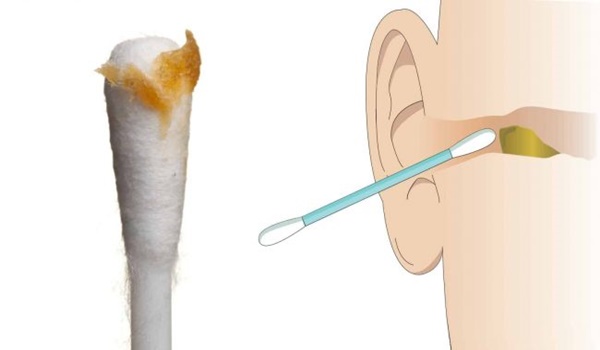Ever since childhood, we were led to believe that Q-tips are beneficial to our ears. Of course, medically Q-tips remove excess wax from the ear, causing a sweet tingling sensation. However, although seemingly innocent, cotton Q-tips can be a great threat to your ears.
Cotton buds are first of all, used improperly. There is no clear instruction on how to use a Q-tip rightfully, which ultimately leads to many people experiencing ear damage.
Oftentimes serious, Q-tips are known to cause infections in the ear, aggravating the situation even further. What’s more, some now urge that Q-tips may be entirely responsible for an unwelcome brain infection.
The Case that Changed the Idea of Q-tips
A story on ear infections has really exposed the dangers of using Q-tips. Namely, a man went to the emergency room, following a bad seizure.
The man explained how he experienced pain lasting for couple of hours, followed by a discharge from his ear. At one point the man also lost some of his hearing ability. The condition worsened, causing the man headaches and vomiting.
After making a brain scan, doctors constituted the man was suffering from abscesses in his ear canal, stretching all the way to his skull.
The man was suffering from necrotizing otitis externa or a bacterial infection in the area. The side effects of this condition include swelling, pains, and brain fogginess.
After being surgically examined, the definite problem was not difficult to define. A cotton bud has gotten stuck inside the man’s ear, causing all of the aforementioned symptoms.
After cleaning his ear and removing the cotton bud, the man underwent a ten-week treatment until feeling back to his own.
How Cotton Buds Threaten the Ears
1. Cotton Buds Trap Earwax
Cotton buds don’t help scoop out earwax, but rather push it far inside the ear, thus causing a number of problems. Worst case scenario, this can lead to damaged eardrums, headaches, hearing loss and impaction.
2. Causing Physical Damage
Cotton buds can easily soften, meaning they can easily get trapped inside the ear. By applying extra pressure to clean the ear, you may end up irritating the area even further. In these cases, cotton buds can harm the eardrum and offer up more grounds for infections.
3. Dried Out Ear
The purpose of earwax is to protect the organ from outside harm. When removing it, you can deprive the ear of using wax to prevent infections, resulting in counter-effects, meaning infections and bacteria.
4. Wax, with No Place to Go
Pushing wax deeper inside the ear can make the wax stick and become harder. This means that after becoming sturdy, the wax is harder to remove, which can result in eardrum damage and hearing loss.
5. Preventing the Wax from Benefiting the Ear
Earwax is important as it provides the ear with countless benefits. Protecting bugs from coming into the organ to keeping the canals lubricated and working smoothly, taking away wax from the ear can do more harm than good.
6. Self-Cleaning Organ
As odd as it may sound, the ear can maintain itself alone. When you activate the jaw, the wax is pushed outwards, which helps cleanse the ear of excess product. The same goes for simple activities as eating and talking.
An Easy and Safe Ear Cleanse
To clean the ears in a proper manner, here is what you’ll need:
- Water
- Syringe or a similar object
- Bowl
- Towel
- Alcohol
- Hydrogen peroxide.
Use lukewarm water (not too cold not too hot) and set it in a bowl. If you want, add several drops of hydrogen peroxide to the water. Place a towel under your face and use a medical syringe (or a similar object and fill it up with water.
Lay the right ear backward and drop the water inside the ear, all the way to the canal. Wait for a while until the wax comes out of the ear, and then repeat on the left side. Finally, take alcohol and pour a few drops in each ear.
If the wax doesn’t come out at all, stop action and in case you are dizzy or experiencing any pain. Try again in several hours, or visit a medical professional for a proper ear cleaning.
Symptoms of an Ear Infection
To know if you are experiencing an ear infection at all, be mindful of the following symptoms:
- Ear pain,
- Slight or partial deafness or muffled sounds,
- Ear discharge,
- Fever,
- Seizures,
- Headaches,
- Appetite loss,
- Itching on the outward part of the ear,
- Blistering around the ear or inside the canal,
- Buzzing or humming in the ear,
- Loss of balance.
An ear infection is not a condition to ignore, so if your notice the symptoms worsening, don’t hesitate to seek medical help. As for Q-tips, you never needed them in the first place.


